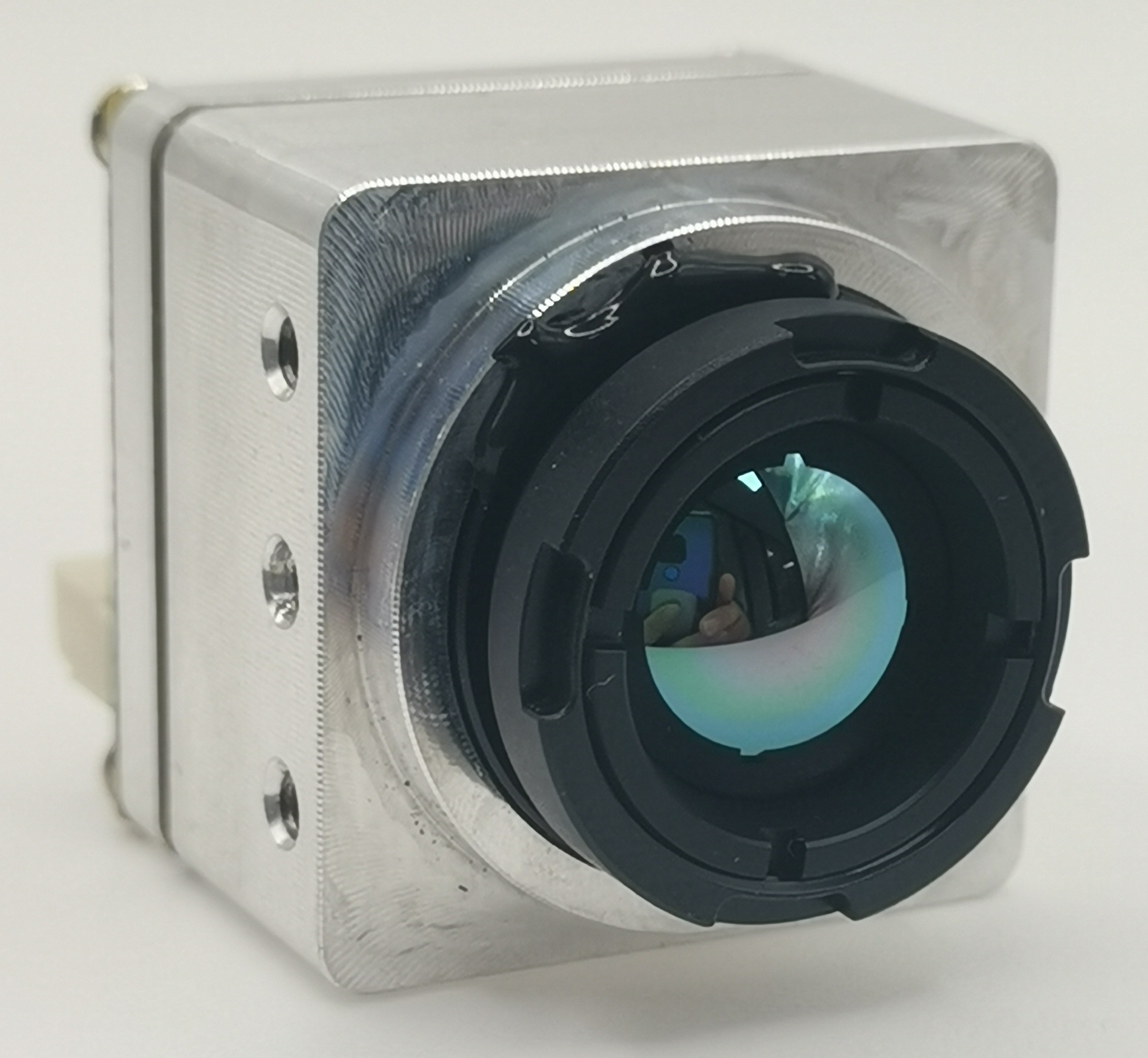The Best Analog FPV Thermal Camera Options for Drones: High Precision and Fast Speeds

Exploring the World of FPV Drones and Thermal Cameras
The Basics of FPV Drone Flying
First, let's delve into the world of FPV (First Person View) drone flying. Drone enthusiasts are drawn to FPV flying for its immersive experience, allowing pilots to see through the eyes of their drones in real time. What makes FPV unique is the ability to pilot a drone as if you were onboard, providing an exhilarating and dynamic perspective. The role of thermal cameras in drone technology has revolutionized FPV flying by introducing advanced imaging capabilities that extend beyond visual line-of-sight.
Why Thermal Imaging?
Thermal imaging has become integral in the realm of drone technology due to its diverse applications and numerous advantages. Drones equipped with thermal cameras are utilized across various industries for tasks such as search and rescue operations, wildlife monitoring, agriculture, and infrastructure inspection. The advantages of thermal imaging include its ability to detect temperature variations, identify heat signatures, and operate effectively in low-light conditions. Understanding the technology behind thermal cameras is essential for harnessing their full potential in enhancing drone capabilities.
Top Analog FPV Thermal Camera Picks for Your Drone
Now, let's explore some of the top analog FPV thermal cameras that are perfect for enhancing your drone's capabilities.
DroneThermal v4: The Micro Marvel
The DroneThermal v4 is a remarkable micro-sized analog thermal camera designed specifically for small UAVs and surveillance purposes. With dimensions of 20mm x 20mm x 10mm, this compact marvel offers high precision and fast speeds. Its simple 3-wire output makes it easy to integrate with a wide range of drones, providing exceptional thermal imaging capabilities in a small package.
Specifications and Use Cases
The DroneThermal v4 boasts impressive specifications, including a high-resolution thermal sensor that delivers clear and detailed images. Its lightweight design ensures minimal impact on the drone's overall weight distribution, making it suitable for various drone models. This camera is ideal for applications such as infrastructure inspection, wildlife monitoring, and search and rescue missions.
Personal Experience and Recommendations
Having personally tested the DroneThermal v4, I can attest to its outstanding performance in capturing thermal data with precision. Its seamless integration with my drone allowed me to explore new possibilities in aerial thermography. I highly recommend this micro-sized thermal camera for drone enthusiasts looking to elevate their aerial imaging capabilities.
IRC-640CA: For the Racing Enthusiasts
For those passionate about FPV racing, the IRC-640CA stands out as an exceptional choice in the realm of analog FPV thermal cameras. This high-performance camera is designed to meet the demanding requirements of racing drones, offering unparalleled speed and accuracy in capturing thermal imagery.
Price and Performance
While priced between $1,800.00 to $2,000.00, the IRC-640CA delivers unmatched performance in FPV racing scenarios. Its ability to provide real-time thermal feedback during high-speed flights sets it apart as a top contender in the racing community.
Why It Stands Out in FPV Racing
The IRC-640CA excels in FPV racing environments due to its rapid response time and precise thermal imaging capabilities. Its integration with racing drones enhances situational awareness and allows pilots to make split-second decisions based on real-time temperature data.
Seek Compact: The Budget-Friendly Choice
For drone enthusiasts seeking an affordable yet reliable analog FPV thermal camera, the Seek Compact presents itself as an excellent budget-friendly option. Priced at $200, this compact thermal camera has been extensively tested for FPV applications and offers impressive performance at an accessible price point.
Features and Flight Test Insights
The Seek Compact features advanced thermal imaging technology that enables clear visualization of temperature differentials from an aerial perspective. During flight tests, it demonstrated consistent reliability and provided valuable thermal data for various scenarios.
Best Use Scenarios
From agricultural surveys to infrastructure inspections, the Seek Compact proves to be versatile in its applications across different industries. Its budget-friendly nature makes it an attractive choice for drone pilots looking to incorporate thermal imaging into their aerial operations without breaking the bank.
How to Choose the Right Thermal Camera for Your Drone
When selecting a thermal camera for your drone, several key factors should be carefully considered to ensure optimal performance and compatibility with your specific drone model.
Key Factors to Consider
Resolution and Sensitivity
The resolution and sensitivity of a thermal camera are crucial aspects to evaluate. A higher resolution allows for greater detail and clarity in thermal images, enabling precise temperature measurements and enhanced analysis. Additionally, sensitivity plays a vital role in detecting subtle temperature variations, especially in low-contrast environments. It's essential to prioritize thermal cameras with superior resolution and sensitivity to capture accurate thermal data during aerial operations.
Compatibility and Integration
Ensuring seamless compatibility and integration between the thermal camera and your drone is paramount. The selected thermal camera should be compatible with the communication protocols and power requirements of your drone system. Furthermore, easy integration with existing onboard systems, such as flight controllers and video transmitters, enhances operational efficiency. Prioritize thermal cameras that offer straightforward integration processes and comprehensive compatibility with a wide range of drones.
Price vs. Performance: Finding the Balance
When to Invest More
While budget considerations are important, there are instances where it's prudent to invest more in a high-performance thermal camera for your drone. If you engage in professional aerial thermography or specialized applications such as search and rescue missions or infrastructure inspections, investing in a premium thermal camera with advanced features becomes imperative. High-performance cameras often deliver superior image quality, extended operational durability, and enhanced functionality, justifying the investment for professional-grade aerial imaging.
Budget Options That Deliver
On the other hand, budget-friendly options can still deliver commendable performance for recreational or entry-level applications. For hobbyist drone pilots or enthusiasts exploring basic thermal imaging capabilities, there are affordable thermal cameras that offer reliable performance without compromising on essential features. By carefully evaluating the balance between price and performance, you can identify budget-friendly options that align with your specific aerial imaging needs while staying within your financial constraints.
Enhancing Your Drone's Capabilities with Thermal Imaging
As the integration of thermal imaging technology continues to expand, drones are increasingly equipped with thermal cameras to enhance their operational capabilities. The real-world applications of thermal imaging in the realm of drone technology span across various industries, offering invaluable contributions to critical operations and environmental monitoring.
Real-World Applications
Search and Rescue Operations
The utilization of thermal cameras in search and rescue operations has revolutionized the effectiveness of locating individuals in challenging environments. By detecting body heat signatures, thermal cameras enable search teams to identify and locate missing persons or individuals in distress, even in low-light or adverse weather conditions. The ability of drones equipped with thermal imaging to cover large areas swiftly enhances the efficiency and success rates of search and rescue missions.
Wildlife Monitoring and Agriculture
In the field of wildlife monitoring and agriculture, drones integrated with thermal imaging capabilities play a pivotal role in ecological research, conservation efforts, and precision agriculture. The use of thermal cameras allows for the non-invasive observation and tracking of wildlife populations, including nocturnal species that are otherwise challenging to monitor. In agriculture, drones equipped with thermal imaging facilitate the identification of irrigation issues, crop health assessment, and early detection of pest infestations through thermal differentials.
The Future of Thermal Imaging in Drones
Emerging Trends and Technologies
The future landscape of thermal imaging in drones is poised for significant advancements driven by emerging trends and technologies. Ongoing developments focus on enhancing the resolution, sensitivity, and real-time processing capabilities of thermal cameras, enabling more detailed thermal mapping and analysis during drone operations. Additionally, advancements in miniaturization are leading to the integration of lightweight yet powerful thermal imaging systems into smaller drone platforms without compromising performance.
Legal Considerations and Privacy Issues
With the proliferation of drone technology equipped with thermal imaging capabilities, legal considerations regarding privacy rights have come to the forefront. Regulatory frameworks governing the use of thermal cameras on drones aim to balance legitimate security concerns with individual privacy rights. It is imperative for operators to adhere to local regulations pertaining to aerial surveillance activities involving thermal imaging. Compliance with legal requirements ensures responsible use while harnessing the benefits offered by thermal imaging technology.
Final Thoughts on Selecting FPV Thermal Cameras for Drones
Recap of Top Picks
As we conclude our exploration of analog FPV thermal cameras for drones, it's essential to recap the top picks that cater to diverse aerial imaging needs. Each thermal camera offers unique capabilities and advantages, allowing drone enthusiasts to match their specific requirements with the right camera.
The DroneThermal v4 stands out as a micro marvel, providing high precision and fast speeds in a compact form factor. Its exceptional performance in applications such as infrastructure inspection, wildlife monitoring, and search and rescue missions makes it a versatile choice for drone pilots seeking reliable thermal imaging capabilities.
For the racing enthusiasts passionate about FPV racing, the IRC-640CA emerges as an unparalleled choice, delivering unmatched performance and real-time thermal feedback during high-speed flights. Its precision and rapid response time elevate the experience of FPV racing while enhancing situational awareness through thermal imagery.
In the realm of budget-friendly options, the Seek Compact shines as an accessible yet reliable analog FPV thermal camera. With its advanced thermal imaging technology and versatility across various industries, it presents an attractive choice for drone pilots looking to incorporate thermal imaging into their aerial operations without exceeding their budget constraints.
Encouragement to Explore and Experiment
As you embark on your journey of selecting an analog FPV thermal camera for your drone, I encourage you to embrace the joy of enhancing your drone's performance through innovative technology. The integration of thermal imaging opens up new possibilities for aerial exploration and environmental monitoring, allowing you to witness the world from a unique perspective.
The thrill of experimenting with different thermal cameras and exploring their applications across diverse scenarios adds depth to your drone flying experiences. Whether you're capturing breathtaking aerial thermography or contributing to critical operations such as search and rescue missions, each moment spent refining your skills with a thermal camera is an opportunity for growth and discovery.
Parting Advice and Resources
In parting, I offer valuable advice to aspiring drone pilots venturing into the realm of analog FPV thermal cameras: prioritize understanding your specific aerial imaging needs before making a selection. Consider factors such as resolution, sensitivity, compatibility with your drone model, and the intended applications when evaluating different thermal cameras.
Additionally, leverage resources such as online communities, forums, and expert insights to gain a comprehensive understanding of analog FPV thermal cameras' capabilities. Engaging in discussions with experienced pilots can provide invaluable guidance in selecting the ideal thermal camera that aligns with your goals in aerial thermography.
Embrace this journey with enthusiasm and curiosity as you harness the power of analog FPV thermal cameras to elevate your drone flying experiences.
Contact Us: Ms. Coco Huang
E-mail: sales@iasun.cn
WhatsApp/Wechat: +86 13510421923

